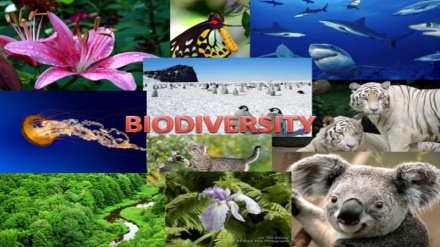We Only Have One Planet to Live On (30)
Welcome to the 30th weekly episode of the series We Only Have One Planet to Live On. Today, we study the importance of protection of bio diversity and how we should fulfill this task.
As a reminder, it was mentioned that if the current process of destruction of bio diversity prolongs, the existence of planet earth would be endangered. Thus, currently, experts put emphasis on the protection of bio diversity and how this task should be materialized.
Planet earth, as the habitat of mankind and other living creatures, based on the current knowledge, is the only planet on which life exists. Meanwhile, bio diversity is the most important source of mankind and the most significant product of millions of years of development of this planet. Hence, at the beginning of the Third Millennium, the world’s thinkers, along with scientists, have concluded that the planet should be protected and safeguarded. Environmentalists believe bio diversity shapes the basis of existence on earth. Unfortunately, in the past, the importance and role of bio diversity was wittingly or unwittingly neglected.
The living environment is known by its bio diversity, which is responsible for maintenance of balance within the environment. Loss of bio diversity ultimately causes an environmental catastrophe. Hence, maintenance of bio diversity should be one of the goals of mankind. Thus, currently, the value of bio diversity in agriculture, human health, trade, industry, and culture is fully known and recognized. For instance, currently, scientists have found that reduction of bio diversity endangers food security. This is because reduction of agricultural bio diversity leaves negative impacts. Therefore, scientists recommend a number of measures such as management of blights, organic agriculture and organic fertilizers; usages of animal wastes, and recycle of products in order to maintain bio diversity in agriculture and to boost food security. Scientists believe that bio diversity in agriculture leads to sustainable production of food, industrial and pharmaceutical goods. They also consider pollination and soil’s living creatures necessary for protection of their products. According to experts, improvement of agricultural ecosystems leads to improvement of soil’s health; improvement of water quality and cycle, and ultimately improvement of the air quality. Further diversity in wild plants can also help production of better, more resistant, healthier, and more economically worthwhile plant products.
Countless articles and books have been authored on the role of bio diversity in man’s health. Further diversity in herbs potentially leads to treatment of many ailments. Also, more diversity secures the sustainable production of cosmetics. Further diversity in food, such as different types of vegetables and fruits, provides more vitamins for our body, thereby boosting the resistance of our body’s immune system. Bio diversity maintains an important role in many industries, because the raw materials of these industries are gained from nature. For instance, oil and gas industry which is considered as one of the most profitable global industries is the result of disintegration of thousands of different types of bacteria and planktons, which exist in seas.
Given the paramount importance of bio diversity, in land and sea, the scientists currently seek to discover avenues to save bio diversity. Adoption of vegetarian diets in the global scene is one of the avenues which have been recommended for protection of ecosystems, plants, and animals, which can also stop climate change. According to experts, excessive consumption of livestock products, and the animal husbandry industry pose threats against bio diversity and mount global warming. Based on a report released by UN Food and Agriculture Organization (FAO), it has been estimated that 18% of greenhouse gas emissions are related to breeding livestock.
Researchers opine that animal husbandry is a leading cause of reduction of bio diversity, because it is the root cause of deforestation, soil erosion, pollution, climate change, excessive fishing, and sedimentations across coastal belts.
Meanwhile, experts, in addition to recommending lesser consumption of livestock products, present other options for protection of bio diversity, such as minimization of pollution. The alarming rate of global warming and climate change may contribute to endangering some species in natural habitats, and push them toward the verge of extinction. Hence, it is necessary to avoid any activity which directly or indirectly leads to global warming. Otherwise, irreparable harms may be inflicted upon animal and plant species.
One of the other avenues for protection of bio diversity is avoidance of the entry of invading specie to ecosystems. Some people want to have a unique orchard. Thus, they bring foreign plant species to their orchard, which could in turn obstruct the growth of local plant species. Hence, in order to maintain bio diversity, it is important to protect the growth of local plant species. The invading species are not just limited to plant types. Some animal species which mankind often brings to local habitats could also overcome local animal species and reduce them in numbers.
However, the most important factor which can help protect bio diversity is reduction of needs and consumption. Mankind’s greed has dealt major blows against the nature. Many animal and plant species have fallen victim to man’s greed and have dwindled in numbers. A variety of products have been made of animals and plants. Prior to purchasing these products, ask yourself whether you actually need these products. Obviously, a fall in the demand market for these products will ultimately prevent their production, thereby saving many animal and plant species.
MR/MG


